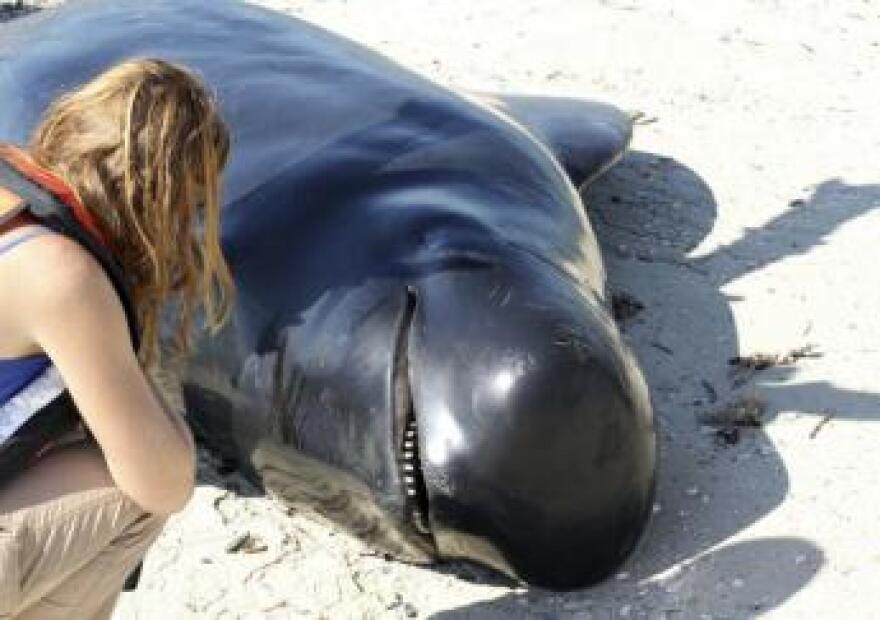Wildlife officials say the death toll is mounting for pilot whales along the southwest Florida coastline.
Boaters discovered 25 dead pilot whales on an island off the Gulf coast Thursday, raising the death toll to 33.
The whales were found on Kice Island, south of Naples and near Marco Island, said Blair Mase, National Oceanic and Atmospheric Administration stranding coordinator. They appeared to have been there for about 24 hours, and are part of a pod first seen on Sunday.
The deceased mammals were discovered two days after the deaths of eight pilot whales near Lover's Key, about 40 miles north. They also come about a month after more than 50 whales were found stranded in the Everglades. Their cause of death has still not been determined.
Pilot whales are susceptible to mass strandings because they form close-knit social groups and are often unwilling to leave even one sick whale behind. But Mase said the number of strandings in the last year is higher than what scientists typically see.
"It is unusual and it is something we are looking at," Mase said.
Necropsies performed on eight whales that died on Lover's Key on Monday and Tuesday showed all the animals had empty stomachs. There were no other significant initial findings, Mase said. The whales that died in the Everglades also had empty stomachs.
Pilot whales have been known to carry the morbillivirus, which can cause skin lesions, pneumonia, brain and other infections. Scientists have explored that as one of several possible explanations for the deaths.
The deceased whales discovered Thursday included 16 females and nine males. Mase said it was possible they were part of a pod that included the whales found at Lover's Key but that had broken into separate groups. Pilot whales typically travel in groups of 30 to 50 whales.
Deep, colder water about 20 miles offshore form pilot whales' natural habitat. Once they get too close to shore they can become dehydrated and disoriented, making it difficult to get further back out to sea.



